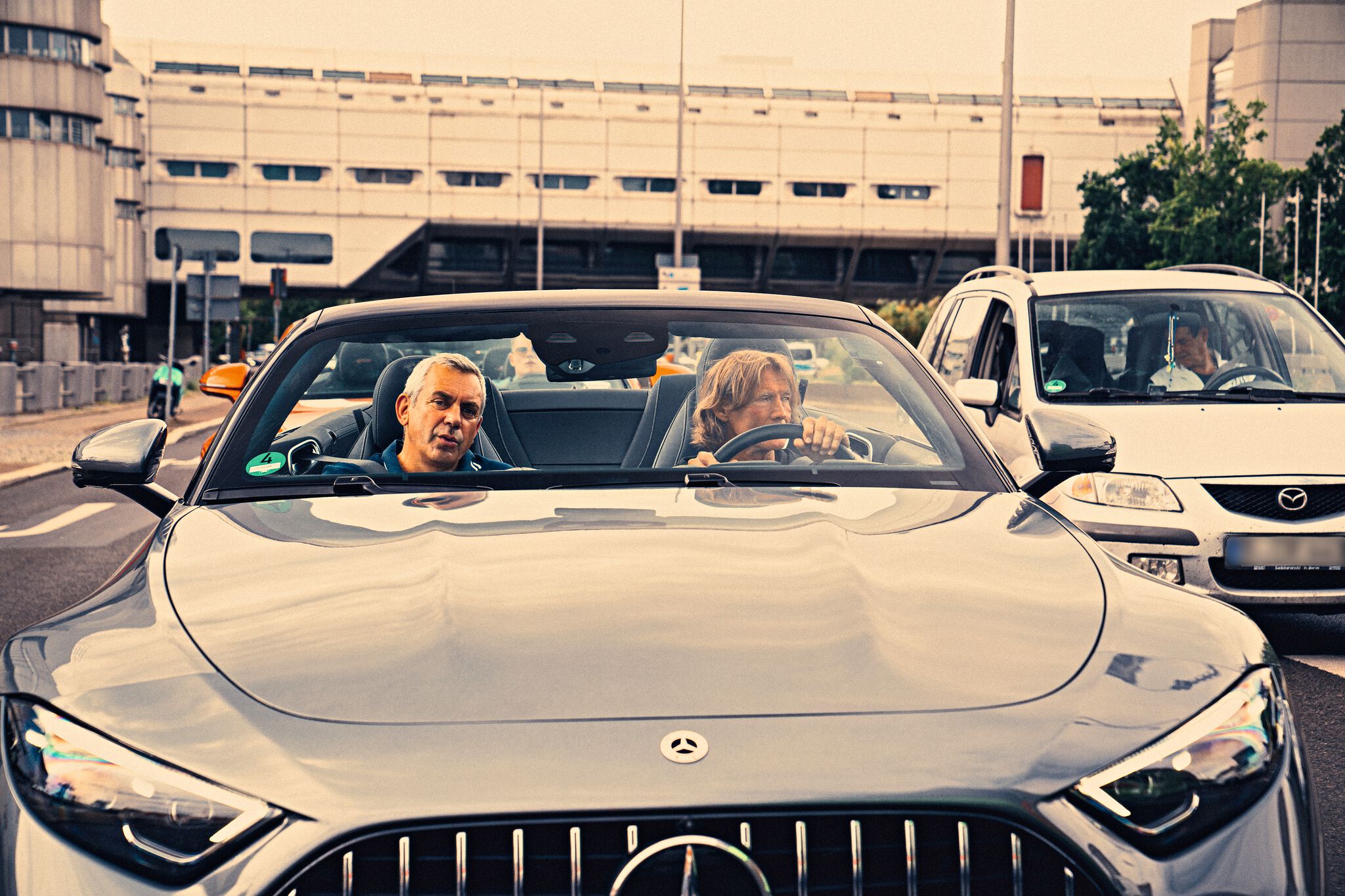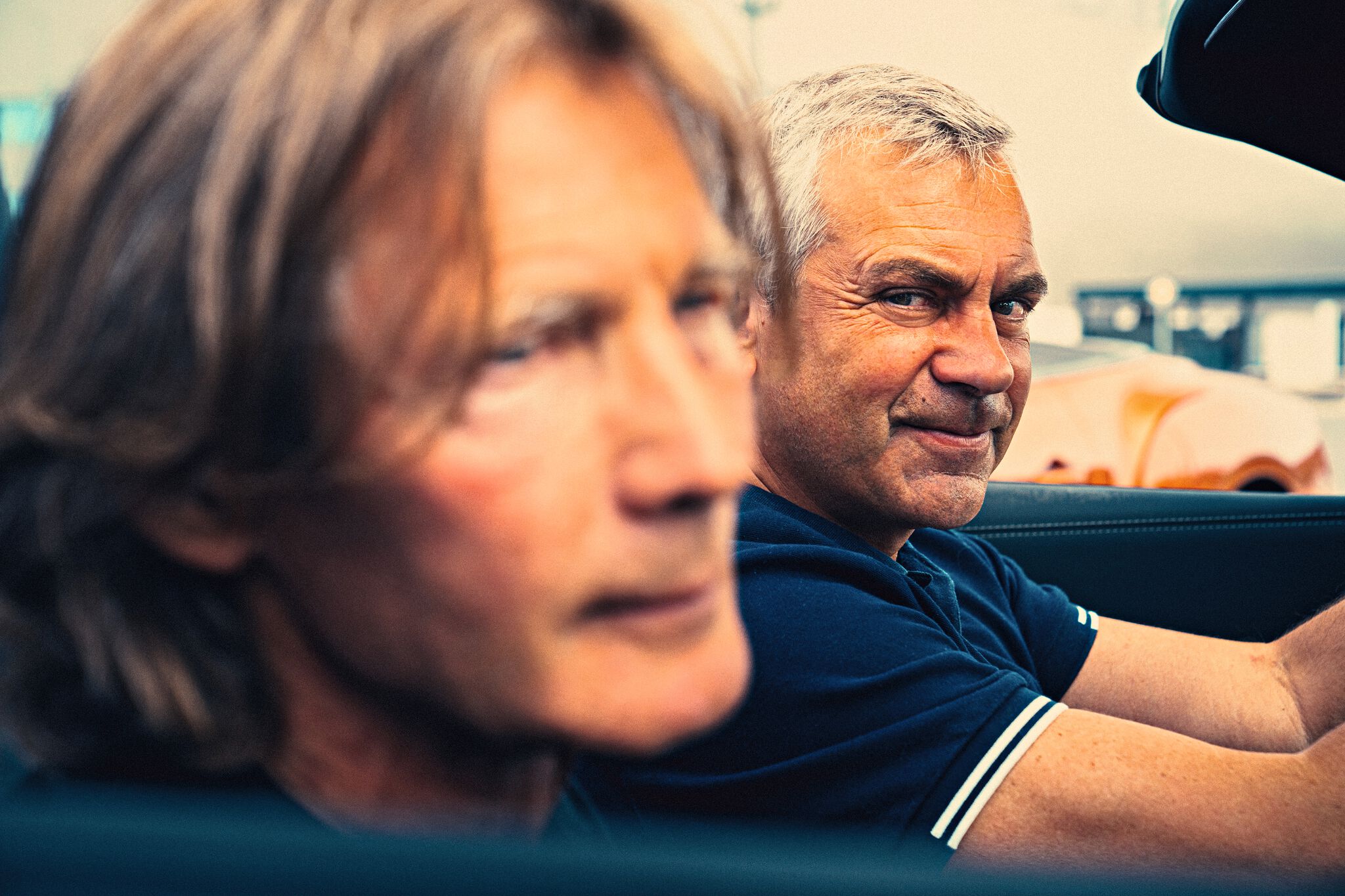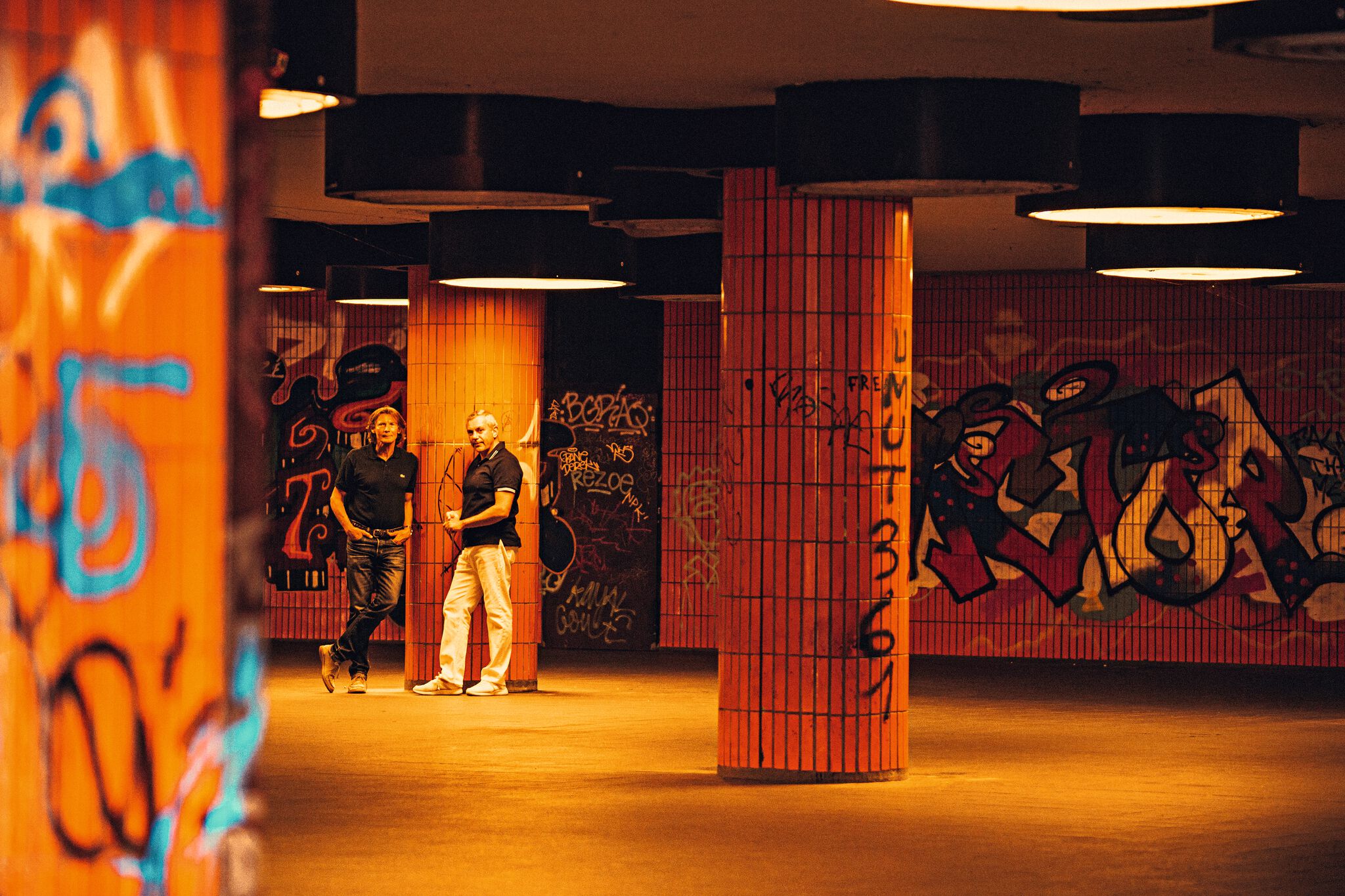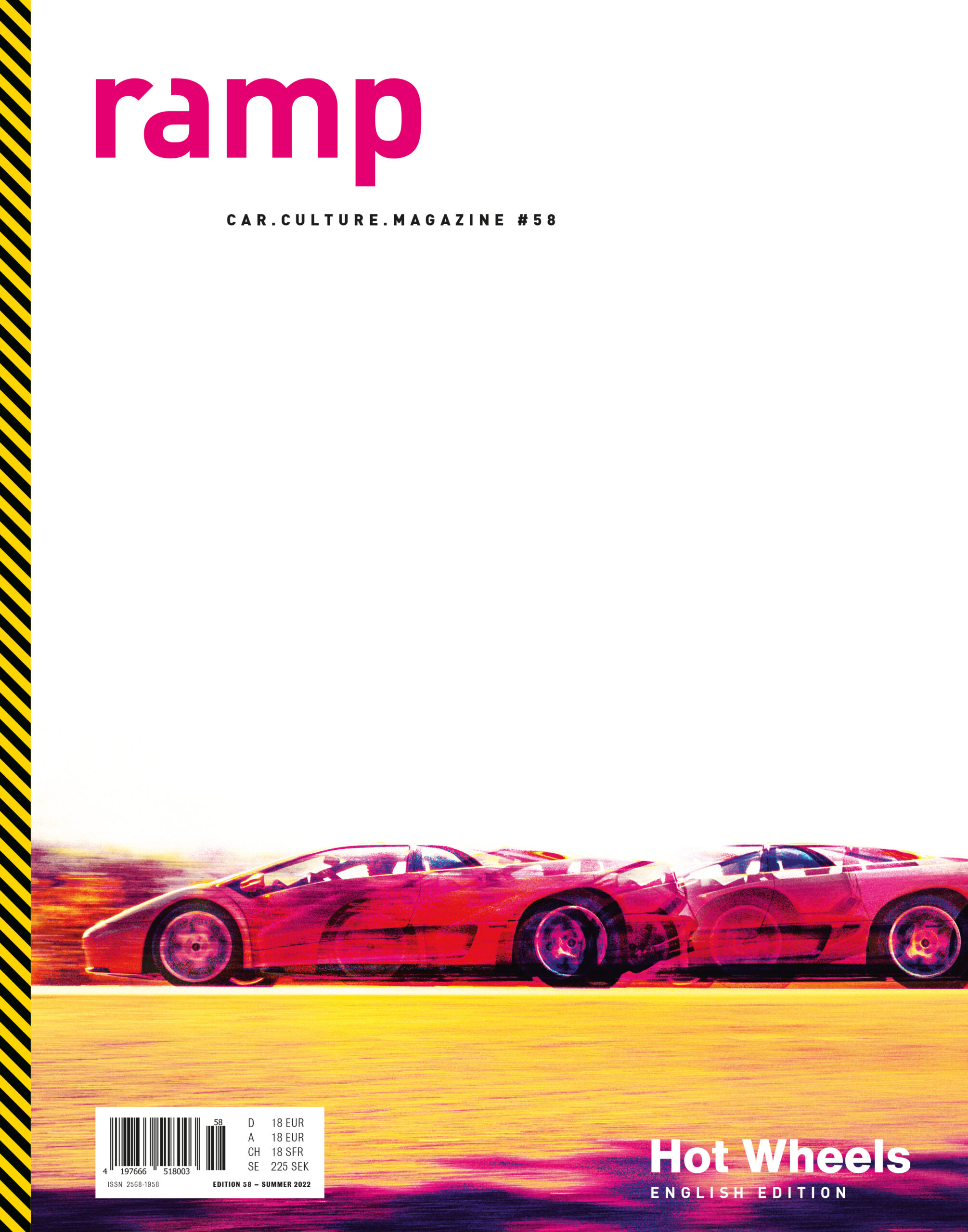Some thoughts about man and the play element. And in the end, God is naked. Because you never know how things will turn out.

The river of life has a strong current and we are poor swimmers. Sometimes we go under . . . come back up . . . and don’t know where we are or where we want to go. We guess our way through life. Tirelessly, man tries to explain himself and his environment, he does it again and again, which does not mean that every new explanation brings him closer to the truth. The truth is like the horizon: the faster we race to reach it, the more impudently it retreats into the distance. After thousands of years of exhausting thinking, we have developed and discarded many theories, but we haven’t become much wiser. What is man anyway? Is he a talking fish? A rational animal on two legs? An image of God, an adaptable fungal culture flown in from outer space, or a creator of himself? Most philosophical concepts of the past are now questioned, ridiculed and doubted. The theory of the tabula rasa, postulated by John Locke in the seventeenth century, has survived for an unusually long time. This theory holds that man is a “blank slate”, that he comes into this world without any preprogrammed content, that he develops his own abilities and makes his own experiences, that he learns to communicate mostly by playing with his peers. Already on the playground, children discover their likes and dislikes and try out different strategies for life and survival that will help them later in adult life. And even as an adult, man is constantly building new playgrounds for himself. He does not stop playing, the game is a simulation, it prepares us for the unexpected, it teaches us to act correctly, to behave smartly, to get by in any situation.
Homo Ludens

Homo ludens, the playing man, starts to think about himself. His temperament and his character are determined by his participation in play; he only becomes a person by learning to act collectively, to compete with others, to win or, even more importantly, to lose. According to this explanatory model, our first childhood toys play a crucial role in the formation of our character; the things we are given on our first birthday significantly influence the rest of our lives. In the language of gender studies, a science that studies gender as an imposed social construct, this would mean that you could easily rid newborn babies of such imposed stereotypes, that you could reverse the typical male and female gender roles. If girls were given toy cars and boys dolls for their birthday, they would have less trouble navigating the new, diverse, gender-neutral world.

Quite honestly, I have my doubts about this theory. I know girls who were passionate about ice hockey and not averse to a career as a firefighter – and still went on to become housewives. Other friends spent their childhoods playing only with Lego bricks and still didn’t become construction workers. Still others fell in love with cars even though they never played with them as children. My friend Michael, editor-in-chief of ramp, came to Berlin to explore these questions with me in a very hands-on way. Since Michael has dedicated this issue to the topic of play, taking a couple of convertibles for a spin around the German capital seemed for him the logical way to go.

What could be more rational than meandering through a crowded city in two convertibles in the middle of summer at thirty degrees in the shade, with a sunburn and a light breeze on your face, something men like just as much as women. Women even more so because they like to be seen driving a fancy car. I remember my first toys quite well, by the way, and it wasn’t a car, it was a pair of stuffed animals, a rabbit and a wolf. I made the mistake of taking the rabbit to preschool with me, which was not gender-conform, of course. A nasty girl by the name of Natalia immediately plucked out one of its eyes – out of jealousy, because I was spending more time with the rabbit than with her. One-eyed, the rabbit got even more attention from me; I felt unspeakably sorry for it, after all, it had sacrificed an eye for me. I got my first big car when I was five; it was, if I remember correctly, a convertible. A red plastic convertible with pedals, steering wheel and brakes. I was too lazy to pedal, though. When we went for a walk with my mother in the woods next to our house, I always stopped the car under a tree somewhere. One day my mother tied a rope to the front of my Ferrari and pulled me through the forest. Not far from our apartment there was a hospital for people with, as one would say today, cognitive impairments. Among the people being treated there were exhibitionists. The gate to the hospital was always open, and the patients were free to walk in the woods. So it was only a matter of time before we encountered an exhibitionist in the forest during one of our test drives. Once, I suddenly found myself face to face with one of these men standing there right in front of my car with his pants down. I made a full stop while my mother continued to pull on the rope. The rope snapped with a bang and my mother yelled, “Get out of here, you pervert!” She didn’t seem at all afraid of the naked man. The man shouted a few incomprehensible words and disappeared among the trees. That same evening, I asked my father if instead of a red convertible he could get me a dark green tank, that seemed to me to be the more suitable vehicle around here.

Bread and Circuses
I grew up in a quiet country, where wild outbursts were socially frowned upon; even at pop concerts featuring famous solo artists, the audience didn’t go wild. The people listened to the fine arts with discipline, preferably seated; friendly but reserved, they gave applause to their beloved musicians, in quantities prescribed by the organizer. The organizer was always the state, and it was not to be trifled with. The only place where you could express unfettered exuberance in public without fear, where you could shout at the top of your lungs and wildly throw your hands up in the air without breaking any of the rules or facing dire consequences was the soccer stadium. There, and only there, people from all walks of life could collectively shout out the most moronic slogans at the top of their voices. My father, a great lover and fan of FC Spartak Moscow, took me to the stadium on several occasions. I think that very few of the spectators – 99% of them were men – were actually interested in the game. Most of them came there to shout, to experience strong emotions together. As a shared experience, soccer games create an unusually strong sense of solidarity among people; it’s not for nothing that we say that fans can get feverish with excitement when they cheer on their team. And as everyone knows, fever is a symptom of illness; you are considered sick if you have a fever, and you should stay at home in bed, not jump up and down like a madman in a soccer stadium.

During a soccer match, on the other hand, anyone who isn’t feverish with excitement is likely to be regarded as being ill. At these games, I always watched the stands and never the field. The stadium was huge; from our seats the players seemed very small and we couldn’t see the ball at all. The spectators were easy to see and I noticed how easily they would get upset over what I thought were trifles. What impressed me most about soccer was the predictability of human emotions. The generally accepted notion of feelings is that emotions are a private matter, that your feelings are yours alone. That’s why we say that you “share” your feelings with someone. All sorts of things can be jointly owned: a house, a bank account, a car, etc., but not feelings. A second postulate about feelings is that feelings generally arise spontaneously. Something happens and we become angry or delighted. We “suddenly” burst into tears, or we “suddenly” burst out laughing. Back in the stadium, I learned that emotions are quite predictable. We usually know pretty well how we feel in a given situation; we often know what others feel, and we build our behavioral strategies, our social communication, on these ideas. Mistakes are possible, but rare.
In soccer, you know what’s going to happen when one team scores a goal. Half the stadium stands up at the same moment and starts screaming, the other half rolls its eyes and tears at its hair. Every soccer fan, whether in the stadium or at home in front of the TV, knows exactly what to do, what emotions to show and how: jump up, throw up your hands, grab your head. The game allows people to communicate synchronously; they can understand what is happening without words. If people are prevented from synchronizing their emotions for any reason, it can make them ill.

I recently came back from Bulgaria. The Bulgarians feel very sorry for themselves. They are considered the poorest country in the European Union, and they wear this questionable title with a certain amount of pride. They feel lost in Europe, as if the continent doesn’t care about Bulgaria at all. The matter of poverty does not concern them so much. But Bulgaria suffered a particularly hard blow during a European soccer championship that took place several years ago but still offends the country to this day. A technical error in Bulgaria during the broadcast of the games caused the sound to come half a minute earlier than the picture. So the commentator shouted “Goal!” when a goal had yet to be scored. All the games were ruined. The Bulgarians weren’t able to fever in sync with the rest of Europe. They were incredibly upset about that, they wrote letters of complaint to FIFA, to the television stations, to the company responsible for broadcasting the games, to the European Parliament in Brussels and to the good Lord. Nothing helped. For ten whole days they were excluded from participating in the shared European gameplay.

Today, more and more people are watching women’s soccer. Considering the MeToo debate, a correct decision. We know that in the near future, at the latest when internal combustion engines are no longer produced, women will take over boxing, heavyweight lifting and, of course, the game of soccer; men, if they want to stay in tune with the trend of the times, will switch to other, less drastic sports, such as figure skating or rhythmic gymnastics. In all fairness, it must be said at this point that women’s soccer is actually more exciting to watch than men’s soccer. Women play differently than men, they understand more about team spirit, but they are just as fierce and perhaps less selfish. Though, of course, they also have their Ronaldos; that’s just part of the essence of the game.
Mind Games
We live according to the mantra of constant, endless growth, a way of life that is associated with progress, prosperity and comfort. We believe that without constant growth the world would sink into a recession and people would become impoverished. Constant growth demands constantly increasing performance. In this context, play is something like the last link between passion and performance, which, in the heat of the permanent optimization of work processes and objects, all the way to the perfection of one’s own body, are increasingly drifting apart.

Language shows us the direction in which society is heading. “We must become more professional” or “We need to stay objective” are common phrases that are often used these days without giving much thought to the fact that this lack of emotion can also result in disastrous consequences, stunting the humanity within us.
Does anyone really want to live in a world where only machines are in charge? We are already acting like machines ourselves, we divide society into low achievers and high achievers, we proudly talk about high performers as if people were vacuum cleaners. The joy of forgetting oneself in an activity, the fun of working on a task, of becoming faster and smarter than others – everything playful is disregarded. Experts warn: if performance is judged by its exchange value – in other words, if performance is a speculation – then passion is judged by its use value. I am firmly convinced that a project can only succeed if performance and passion are combined in the right proportions, if work is both playful and controlled. Still, we cannot rely on playfulness alone. A few years ago, in 1994, the American mathematician John Nash was awarded the Nobel Prize in Economics for his contributions to game theory, which even then claimed to be able to foresee or program almost all processes and excesses in the world, from nuclear war to IPOs to stock trading. His theory assumed that rational behavior in every conceivable decision situation could be determined with mathematical precision. Over time, game theory has sprouted a colorful bouquet of new fields, including new concepts of evolution in biology or educational play as a separate, progressive school of thought. Nash was able to explain all sorts of things, with the exception of his own behavior. He suffered from schizophrenia for thirty years, was convinced there were several conspiracies against him and mailed explanations of his wild delusions to embassies and friends alike. The rambling letters were carefully wrapped in silver foil, decorated with cut-out pictures of Lenin and stamped streetcar tickets.

Play It Again
Play is to be enjoyed with caution. It is like life – dangerous, risky – and can end fatally at any time. My wife can tell you a thing or two about it. Her two older brothers were professional players. Starting in kindergarten they played at any time of day and later even at night. What they played didn’t matter to them. They played rock paper scissors, backgammon, billiards, cards or roulette. They played word games and board games. I don’t think there is a game in the world they didn’t know. They played for money and without. For a while, my then-future wife shared an apartment with her two brothers. It was almost unbearable. They played to see who would carry out the trash and who would do the dishes. Who would pick up the mail and who would cook lunch. Every simple matter became the subject of a game. They played strip chess, and whoever lost had to strip naked and continue playing until they won. Their life was a constant up and down, from victory to defeat and back, a roller coaster of emotions is what we would call it today. Often, very often in fact, they won at poker and were able to do something else for a change, but they always went back to the poker table and played until they had lost it all again. Surprisingly, however, there were always people to bail them out. I have found the brothers to be quite exhausting. But my wife loved them, they were her brothers. One of them came to us in Berlin in the nineties. At that time, you were still allowed to play live poker in Germany, at the Europa Center, not on machines, but with other players. The brother explained to me that with five thousand marks he could easily finish the round at the table. I lent him the necessary money, we all went to the casino together, me, my wife, who was pregnant at the time, and her brother, the big poker player. He didn’t know any German, so we thought maybe he could use us as interpreters. There were strange people sitting at that gambling table, they looked like Arab princes, oriental carpet dealers, Chechen horse breeders, definitely an exotic, multicultural crowd. The brother played very well. Within an hour he had turned my five into his ten thousand marks. It was the right time to leave. But real players can’t leave, certainly not voluntarily. I didn’t know that at the time. “And now,” said the brother, visibly drunk from his success, “we’ll finish off the roulette, too, because I’ve recently developed a new game theory, which I have myself derived from probability theory.” I suggested to him that he postpone this extremely exciting but risky experiment, to find another evening for it, or – even better – to first try out his theory at our home on a children’s roulette game, then to study the collected data, and later maybe . . . But the brother was unstoppable. “No, here and now! We mustn’t break the lucky streak!” he said, and resolutely went to the nearest roulette table. We left the casino an hour later – with no money and no hope of revenge. For the remaining ten days in Berlin, the brother sat at home in front of the computer and played card games with Google, just like that, with no prospect of winning anything. He was pretty bored in Berlin and soon flew back home. We haven’t seen each other since. Last year he died of diabetes. Sometimes I imagine that the brother is now sitting on a cloud and playing strip chess with God. And God is naked.
Text: Wladimir Kaminer
Photos: Matthias Mederer · ramp.pictures
ramp #58
As a high-impact multimedia brand that takes an all-encompassing, end-to-end approach to publishing, ramp is an absolutely authentic expression of quality, integrity and excellence. Its trailblazing luxury magazines, recognized with numerous awards over the past 15 years, have been celebrated for their cool and unconventional, not to mention inspiring and pioneering style, since day one.
ramp, the lavish and beautifully designed coffee table magazine, celebrates the enthusiasm for cars and driving in a passionately subjective, personalized fashion.
Immediate, authentic, intense. Fresh perspectives, avant-garde imagery, with a fine feeling for nuances and the right dramaturgical mix. Always new, always stimulating. Automotive passion infused with a lust for life. The automobile in new, exciting and intense contexts, precisely tailored to the relevant target group, presented in relation to music and fashion, culture and lifestyle, design and art, science and philosophy.













